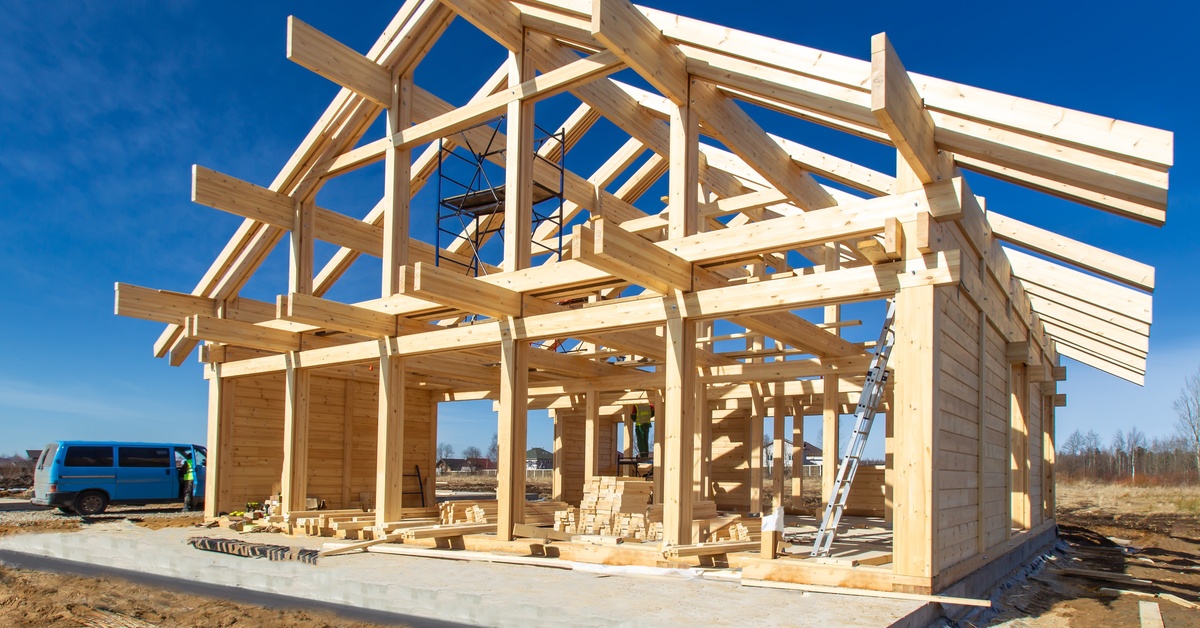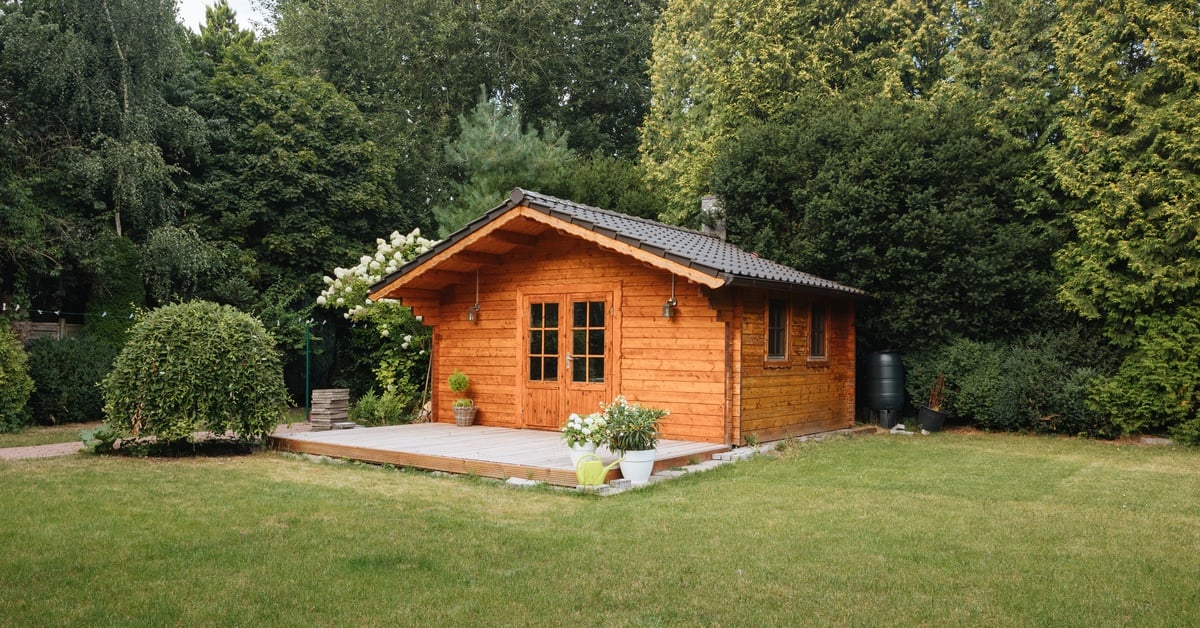What Are the Pros and Cons of Off-Grid Living?
August 29, 2025 7:41 am PST

Off-grid living is a lifestyle choice that has become popular over recent years. It represents a departure from conventional living, wherein individuals rely on typical utilities like electricity, water, and natural gas provided by centralized systems. For many, it symbolizes freedom, self-reliance, and a deep connection with nature.
However, as with any lifestyle, there are advantages and challenges to consider before embarking on this journey. Living off the grid requires substantial planning, adaptability, and a clear understanding of the responsibilities it entails. This may involve intense labor, unexpected costs, and moments of isolation.
Whether you’re a survivalist, an environmental enthusiast, or someone seeking financial independence, off-grid living offers unique opportunities and challenges worth exploring. When you learn the pros and cons of off-grid living, you can make an informed decision to ensure this lifestyle aligns with your needs and goals.
Financial Advantages of Off-Grid Living
Living off-grid can drastically reduce monthly utility bills associated with modern urban life. Without monthly payments for water, gas, electricity, or municipal services, savings can accumulate. Over time, these savings could fund improvements or upgrades to your chosen off-grid property.
The ability to grow your food and harness renewable energy often leads to long-term savings. Solar panels, wind turbines, or micro-hydro systems offset energy costs significantly after installation. Many off-grid systems lower waste expenses, benefiting your budget.
Despite initial costs, financial freedom is one of the biggest benefits of leaving the grid. Fewer expenses translate to less reliance on external systems for survival. Over time, this lifestyle becomes considerably more affordable.
Environmental Benefits
Off-grid living promotes sustainability by reducing dependency on fossil fuels and lowering carbon footprints. Powering homes with solar energy or wind turbines lessens pollution, benefiting ecosystems. This lifestyle emphasizes eco-conscious choices that protect the environment long-term.
Growing organic food further contributes to environmental health by eliminating chemical fertilizers and pesticides. Composting waste and recycling materials enhances sustainability while minimizing global ecological strain.
Water conservation techniques develop naturally as off-grid living mandates responsible consumption. Rainwater harvesting or natural filtration systems avoid wasteful municipal usage. These create positive environmental outcomes reaching far beyond personal spaces.
High Startup Costs and Infrastructure Challenges

Building infrastructure for an off-grid home requires a significant upfront investment, often costing thousands of dollars. Buying land, securing permits, and setting up utilities like septic systems can strain budgets. If you want to buy land in Alaska, you can enjoy a unique environment, but additional costs may arise due to the remote nature of many areas of the state.
Alternative energy solutions, though cost-saving in the long run, involve high initial expenditures. Solar panels or wind turbines need professional installation and maintenance. A financial cushion is essential for effectively covering these infrastructural efforts.
Implementing water systems like wells or rainwater harvesting requires specialized equipment and regular upkeep. These initial investments deter many from pursuing off-grid dreams.
Physical Labor and Maintenance Responsibilities
Off-grid living demands an active lifestyle with consistent physical effort to maintain daily systems. Tasks often include chopping firewood, cultivating gardens, or carrying water, which can be exhausting.
Wind turbines or solar panels need constant monitoring for efficiency. Repairs frequently necessitate DIY skills or specialist help. This lifestyle requires individuals to be resourceful and adaptable in the face of emerging challenges.
Maintaining the land itself proves labor-intensive as fields, trails, or fences require regular attendance. Time and effort for upkeep divert energy away from leisure pursuits or relaxation activities. Balancing work and rest is essential for success and safety.
Independence and Self-Reliance
Choosing to live off-grid emphasizes autonomy, significantly reducing dependency on external systems or organizations. An understanding of how to create energy, water, and food fosters resilience and independence. Living off the grid will teach you important survival skills that empower personal growth.
Decision-making shifts completely under personal control, offering many freedoms unavailable in conventional housing. Unintended disruptions like blackouts or municipal issues no longer impact daily life in the same way.
Survival preparedness aligns strongly with self-reliance principles. Off-grid homes naturally accommodate emergencies better when equipped with renewable resources or self-maintaining systems. Resilience grows exponentially through these independent capabilities.
Isolation and Limited Social Connections

Off-grid living often involves moving to remote or sparsely populated areas with minimal social interactions. The physical distance from neighbors, friends, or family can generate loneliness over time. Joining local community groups, attending nearby events, or engaging in shared projects such as farming cooperatives can help foster meaningful connections while living off-grid.
Many individuals find it challenging to create communities within rural environments. Isolation may be one of the most complicated parts of living off-grid, and it has the potential to weigh on individuals.
On the contrary, some people enjoy solitude and individual space without external interference. Relationships become intentional rather than habitual as individuals selectively foster meaningful engagement.
Food Security Through Off-Grid Living
Growing and consuming locally sourced, organic food shields against changing grocery costs or shortages. Off-grid food systems empower you to achieve incredible levels of sustainable nutrition directly. Cultivating reliable nutrition reduces dependency and allows your body to grow stronger and healthier.
Preserving food through methods like canning or freezing ensures lasting supplies against unforeseen events. Families can thrive confidently through proactive planning and diligent usage techniques.
Sustainable farming requires constant attention to soil quality, pests, and variable weather impacts. Off-grid living guarantees food access but also introduces potential stress if the land is not available for production.
Legal and Zoning Restrictions
Legal and zoning restrictions guide development projects, particularly in remote areas. These rules require strict adherence to specific regulations, especially when implementing utilities or waste management systems unique to these settings.
Before advancing any development plans, it is essential to meet these requirements to ensure compliance and sustainability. Opportunities for customization may be possible during the early stages of a project, but these must always align with the established guidelines.
Clarity in procedures and adherence to local regulations are essential for adapting effectively while following all necessary criteria and legal frameworks.
Opportunities for Personal Growth
Off-grid living offers unique opportunities for personal growth, fostering resilience and adaptability in the face of challenges. It requires you to step away from conventional comforts and develop innovative solutions to everyday problems, which can lead to heightened self-reliance and creativity.
By removing many modern conveniences, you gain a deeper understanding of resourcefulness, patience, and simplicity. When considering the pros and cons of off-grid living, it becomes clear that these hardships can also serve as valuable lessons, shaping character and providing perspective.
This lifestyle pushes individuals to explore their limits, redefine success, and uncover a sense of purpose grounded in sustainability and self-discovery. These experiences, though demanding, often result in a richer connection to nature, a stronger sense of identity, and profound emotional development.
While off-grid living offers numerous advantages, it also comes with its share of challenges. It promotes self-sufficiency, reduced environmental impact, and a simpler, more intentional way of life that can foster resilience and personal growth.
However, it requires significant upfront investment in renewable energy systems and infrastructure. It often demands time, effort, and skill to maintain self-reliance, such as managing water, heating, and food supplies. Despite these challenges, the freedom and sustainability of off-grid living outweigh the difficulties, making it a lifestyle of choice for those seeking independence and alignment with nature.


